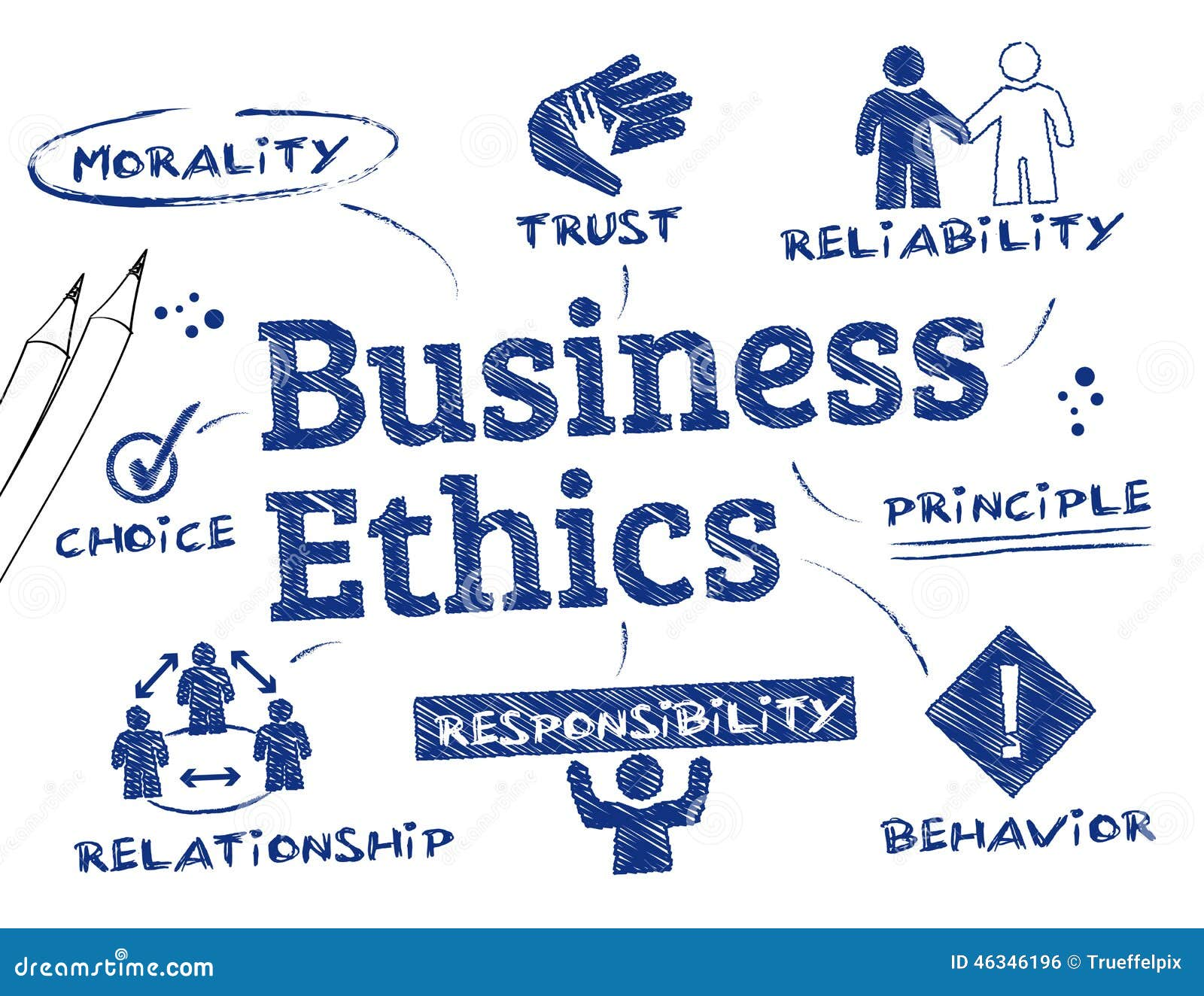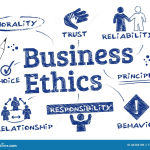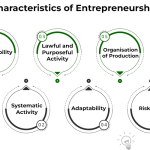Business ethics is crucial in today’s complex corporate landscape, where leaders encounter numerous ethical challenges daily. As professionals navigate decision-making strategies, the influence of ethical decision-making becomes paramount, especially amidst the fallout of high-profile scandals exemplified by figures like Joseph Badaracco, who has profoundly impacted the field. His extensive experience highlights that ethical considerations are not merely theoretical but practical tools that shape how business leaders operate. The importance of establishing a robust moral framework has never been more evident; with technological advancements and globalization, ethical dilemmas are becoming increasingly multifaceted. Executives are not only responsible for profits but also for maintaining integrity and accountability in their organizations, ensuring that their choices reflect an ethical understanding of their impact on society.
When we talk about corporate ethics, we’re diving into the realm of responsible business conduct that governs how companies engage with various stakeholders. Ethical conduct is essential for modern managers, who face a plethora of dilemmas that demand nuanced judgment. As the landscape shifts due to technological and social changes, the foundation of good business practices must adapt, reflecting the evolving expectations of society and regulators alike. The work of thought leaders in this field is vital for providing frameworks that enable leaders to navigate these multifaceted issues. An emphasis on accountability and thoughtful decision-making processes is necessary for today’s businesses to thrive while contributing positively to the communities they serve.
Understanding Business Ethics in Today’s Landscape
The concept of business ethics has evolved significantly over the past few decades. Historically, business ethics was often centered on applied moral philosophy—teaching foundational theories such as utilitarianism or deontology and applying them to business dilemmas. However, as Joseph Badaracco notes, the contemporary approach acknowledges the complex realities of decision-making in business, prioritizing the situational context over rigid theoretical frameworks. This evolution reflects an increasing awareness among business leaders that ethical implications are multifaceted and vary across global contexts.
Today’s business environment is rife with ethical challenges that differ from those of the past. The rise of technology, such as AI and robotics, alongside increasingly interconnected global markets, means that executives must navigate numerous ethical landscapes. This shift has led to a more nuanced understanding of business ethics, emphasizing the importance of context and the myriad relationships companies maintain with stakeholders. Business leaders now face the challenge of integrating ethical considerations into their decision-making strategies to foster responsible practices that align with the values of their organizations and society.
Decision-Making Strategies for Ethical Leadership
Effective decision-making strategies are crucial for business leaders, particularly in navigating ethical challenges. Joseph Badaracco emphasizes a bottom-up approach, where managers focus on specific circumstances and stakeholders involved, rather than relying solely on top-down ethical theories. This pragmatic method allows leaders to weigh various perspectives and prioritize critical factors such as risks and expert opinions, which can significantly influence a business’s trajectory.
Moreover, leaders must recognize the importance of their judgments, which often exist on a spectrum rather than a binary of right and wrong. Understanding that ethical decisions can involve gray areas is crucial for fostering an environment where thoughtful reflection and open dialogue are encouraged. By cultivating a decision-making framework that prioritizes ethical implications, business leaders can better navigate complex situations while maintaining integrity and accountability.
The Role of Reflection in Ethical Decision Making
Reflective practice is a vital component of ethical decision making in business. Badaracco’s research reveals that many successful executives engage in reflective activities—be it through exercise, quiet contemplation, or discussions with trusted peers—to clarify their thoughts before making decisions. This practice not only helps to sort through personal biases but also encourages a more comprehensive understanding of the issues at hand, allowing leaders to make more informed ethical choices.
The questions that guide reflection—such as “What truly matters?” and “What are my central responsibilities?”—enable leaders to evaluate the potential implications of their decisions critically. This introspective process is essential for ensuring that decisions are not merely reactive but are instead grounded in an ethical framework that takes into account both personal values and the broader impact on stakeholders. Ultimately, reflection can provide clarity and bolster confidence in making sound, responsible decisions.
Navigating Ethical Challenges with Decision-Making Frameworks
In today’s business landscape, ethical challenges are often intertwined with complex decision-making scenarios. Badaracco asserts that understanding the interconnected nature of various stakeholders is essential for business leaders confronting ethical dilemmas. Effective decision-making frameworks should incorporate both the legal obligations of a company and the ethical expectations of its stakeholders, which can often conflict.
One effective strategy is to utilize decision-making models that account for ethical, legal, and social considerations. By employing such frameworks, business leaders can systematically analyze potential outcomes and align decisions with their company’s ethical standards. This proactive approach not only mitigates risks associated with unethical behavior but also reinforces the organization’s commitment to integrity and transparency in all its dealings.
The Impact of Cognitive Biases on Ethical Decision-Making
Cognitive biases significantly influence ethical decision-making processes, leading to potentially unethical outcomes. In environments characterized by gray areas, leaders may be especially susceptible to these biases, which can cloud their judgment and obscure critical ethical considerations. Awareness of these cognitive pitfalls is essential for business leaders who wish to navigate the complexities of ethical dilemmas responsibly.
To counteract these biases, it is crucial for executives to actively seek diverse perspectives and engage in collaborative decision-making processes. By evaluating various viewpoints and subjecting their judgments to rigorous scrutiny, leaders can diminish the likelihood of making self-serving decisions. Emphasizing a team-oriented approach to ethics not only enriches the decision-making process but fosters a culture of accountability and shared responsibility across the organization.
Empowering Ethical Leadership Through Training
As businesses face increasingly intricate ethical challenges, empowering leaders through training and development in ethical decision-making becomes paramount. Joseph Badaracco’s insights underscore the importance of equipping business leaders with the necessary tools to navigate ethical dilemmas effectively. Training programs focused on case studies, real-world applications, and interactive scenarios can enhance leaders’ abilities to assess situations critically and ethically.
Furthermore, fostering a culture that prioritizes ongoing ethical education ensures that leaders remain vigilant and informed about emerging challenges. By investing in training initiatives that emphasize ethical decision-making strategies and empower employees to speak up regarding ethical concerns, organizations can cultivate an environment where ethical leadership thrives. This proactive approach supports the long-term sustainability and credibility of the business.
The Importance of Accountability in Business Ethics
Accountability is a core tenet of business ethics that cannot be overlooked. Business leaders must recognize that their decisions have far-reaching implications. The cases of Sam Bankman-Fried and Elizabeth Holmes serve as stark reminders of the repercussions that come with unethical decision-making. As Badaracco highlights, the rising complexity of business relationships increases the need for accountability among executives; they must navigate these entangled partnerships with a focus on ethical responsibilities.
Implementing accountability measures, such as transparent reporting and regular ethical audits, helps organizations identify potential ethical breaches and foster a culture of responsibility. By making accountability a priority, businesses can reinforce their commitment to ethical practices while simultaneously enhancing stakeholder trust and loyalty, ultimately contributing to their overall success.
Building Ethical Decision-Making Cultures
Creating a culture of ethical decision-making requires a collective commitment from all levels of an organization. Business leaders are responsible for modeling ethical behavior and setting the tone for how decisions are made within their companies. By fostering an environment that encourages open discussion about ethical dilemmas, leaders can empower employees to consider the ethical implications of their actions and decisions.
A strong ethical culture is reinforced through ongoing communication, clear policies, and exemplary practices from leadership. Providing platforms for employees to voice concerns or report unethical behaviors is paramount for building a culture of trust. By actively promoting and recognizing ethical decision-making, organizations can ensure that their core values are not just performative but embedded within their operational practices.
The Ethical Implications of Technology in Business
The advent of technology, particularly artificial intelligence and automated systems, has introduced a new realm of ethical considerations that modern business leaders must address. With technological advancements come ethical implications surrounding privacy, security, and the equitable treatment of employees. Badaracco notes that as businesses become more intertwined with technology, leaders must be proactive in considering how these changes affect their ethical responsibilities.
To navigate these challenges, business leaders should be educated on the ethical applications of technology and its potential impacts on stakeholders. This includes understanding the legal frameworks governing technological practices and anticipating ethical dilemmas that may arise. By integrating ethical considerations into technology adoption and implementation strategies, organizations can ensure that their technological advancements align with their ethical commitments.
Frequently Asked Questions
What are some effective decision-making strategies in business ethics?
Effective decision-making strategies in business ethics include fostering open dialogue among stakeholders, reflecting on personal values, and systematically analyzing ethical dilemmas. Utilizing frameworks from Joseph Badaracco, such as focusing on what truly matters in a given situation, helps business leaders navigate ethical challenges while ensuring that decisions align with both ethical standards and practical outcomes.
How can business leaders navigate ethical challenges in today’s complex environment?
Business leaders can navigate ethical challenges by employing a bottom-up approach to ethics, as emphasized by Joseph Badaracco. This involves understanding the specific circumstances surrounding a decision, considering the varying responsibilities toward stakeholders, and being aware of potential biases that may cloud judgment. Continuous reflection on what is ethically responsible and practically viable fosters sound decision making.
Why is ethical decision making more important now than ever for business executives?
Ethical decision making is increasingly crucial for business executives due to the heightened complexity of modern business environments influenced by global relations and technological advances. As businesses face myriad ethical challenges, adhering to strong business ethics ensures accountability not just to shareholders but also to broader social responsibilities and stakeholder interests.
What role does personal judgment play in ethical decision making?
Personal judgment plays a significant role in ethical decision making, particularly in gray-area dilemmas where right and wrong may not be clear-cut. By reflecting on key responsibilities and examining the implications of various options, business leaders can make more informed and responsible decisions that are both ethical and practical.
How can businesses create a culture of ethical behavior among employees?
Businesses can foster a culture of ethical behavior by promoting transparency, encouraging open discussions about ethics, and providing training on ethical decision making strategies. Leadership should model ethical behavior, reflecting the principles laid out by Joseph Badaracco, to influence employees and create an environment where ethical challenges are approached thoughtfully and collaboratively.
How do cognitive biases affect ethical decision making in business?
Cognitive biases can significantly impact ethical decision making by distorting perceptions and leading individuals to make decisions that favor personal interests over ethical considerations. To mitigate these biases, it is essential for decision-makers to engage diverse viewpoints and rigorously analyze the ethical implications of their choices.
What is the significance of reflection in ethical decision-making processes?
Reflection is crucial in the ethical decision-making process as it allows individuals to consider the implications of their choices deeply. Engaging in reflective practices helps clarify one’s values and priorities, leading to more responsible decision making in complex and ambiguous situations.
How do ethical issues in business differ from those in the past?
Ethical issues in business have evolved to encompass more complex relationships with various stakeholders, influenced by technological advancements and greater societal expectations. As businesses become intertwined with social responsibilities, the challenges of ethical decision making have also become more multifaceted, requiring a nuanced understanding of the surrounding context.
What methods can leaders use to assess the ethical ramifications of their decisions?
Leaders can assess the ethical ramifications of their decisions by employing structured frameworks that consider stakeholder impacts, legal compliance, and moral responsibilities. Tools such as ethical audits, stakeholder feedback, and case studies can provide valuable insights and guide leaders in making ethical choices.
Why is it necessary to understand the legal implications associated with business ethics?
Understanding the legal implications associated with business ethics is crucial as it ensures compliance with regulations and helps avoid potential legal repercussions. A strong grasp of legal frameworks allows business leaders to navigate ethical challenges effectively, reinforcing the integrity of their decision-making processes.
| Key Aspect | Details |
|---|---|
| Changing Nature of Business Ethics | Transition from applied moral philosophy to practical application based on circumstances and situations. |
| Complicated Accountability | Modern executives face a web of relationships and responsibilities that complicate ethical decision-making. |
| Spectrum of Ethical Decisions | Ethical decisions often exist on a gray spectrum, requiring personal judgment rather than strict rules. |
| Self-Awareness and Bias | Decision-makers should reflect and minimize biases through honest and analytical discussions. |
| Reflection as a Tool | Successful executives often engage in reflective practices to clarify their thinking before making decisions. |
Summary
Business ethics are crucial in today’s complex decision-making environments. They demand that leaders not only recognize but actively engage with the ethical implications of their choices. The evolution of business ethics reflects our changing society and its unique challenges. By understanding the nuances of ethical decision-making, executives can better navigate gray areas and make responsible choices that align with both legal standards and core values.







